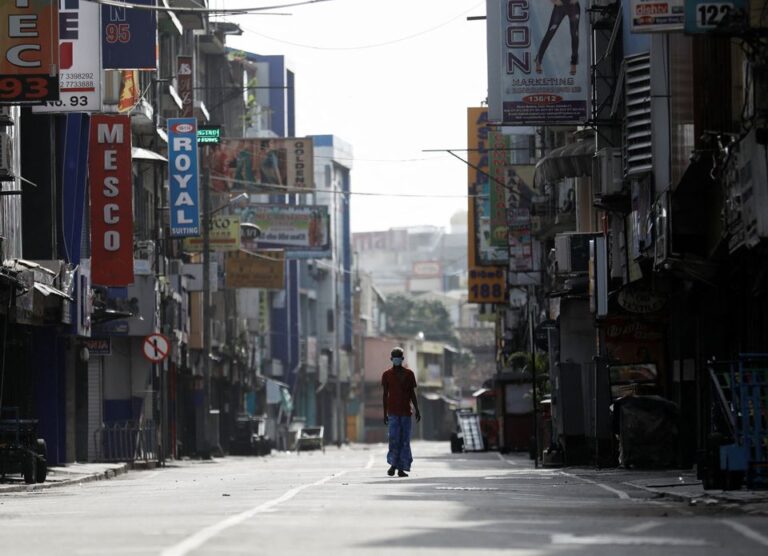
(Reuters) – Sri Lanka’s president urged citizens on Wednesday to reject what he called attempts to foment racial and religious disharmony, as clashes broke out in many areas over the government’s handling of a devastating economic crisis.
Troops have been ordered to shoot at anyone damaging public property or threatening lives, with eight people killed in violent street protests this week.
But even the resignation of President Gotabaya Rajapaksa’s elder brother as prime minister and a curfew have failed to defuse public anger.
“This is the time for all Sri Lankans to join hands as one, to overcome the economic, social and political challenges,” Rajapaksa said on Twitter.
“I urge all Sri Lankans to reject the subversive attempts to push you towards racial and religious disharmony. Promoting moderation, toleration and coexistence is vital.”
It was not immediately clear what prompted the president’s warning.
But there is a long and bloody history of ethnic tension in Sri Lanka, where Sinhalese Buddhists contribute the bulk of a population of 22 million that includes Muslim, Hindu and Christian minorities.
Sri Lankans blame the Rajapaksa dynasty for the economic meltdown that has left reserves of only about $50 million, stalling most imports and bringing massive shortages of food, fuel, medicine and other essential items.
Analysts say the president can be impeached if he refuses to step down, though the opposition, which has rejected his calls for a unity government, lacks the necessary two-thirds majority in parliament.
No president has ever been successfully impeached and removed from office in Sri Lanka.
Rajapaksa and his brother Mahinda, who resigned as prime minister on Monday, held key government positions when a 26-year civil war ended in 2009 after security forces overcame militants from the minority Tamil community.
Protesters in their family’s ancestral base in the south set ablaze a museum dedicated to their father this week. On Wednesday, it lay in ruins, with exhibits looted and smashed.
Police and soldiers patrolled the streets in the southern town of Weerakettiya home to the Rajapaksas, where shops and businesses were shut by the curfew.
Four people were wounded in the town of Rathgama in one of two shooting incidents on Tuesday night, a police spokesman said.
“The situation is now calm,” Nalin Thalduwa added.
WHERE’S THE MONEY?
Sri Lanka has sought urgent loans from the International Monetary Fund (IMF), following financial and other support from neighbour India as well as China, as the violence has further dented a tourism-dependent economy hammered by COVID-19.
The situation in the wake of the prime minister’s resignation could complicate negotiations for more foreign aid.
The IMF expressed concern about the violence, but said it would continue technical talks begun on Monday with Sri Lankan officials “so as to be fully prepared for policy discussions once a new government has been formed”.
The president plans to meet opposition politicians within days in expectation of forming a new government, a cabinet spokesperson said on Tuesday.
Parliament speaker Mahinda Yapa Abeywardena is set to hold meetings online with lawmakers on Wednesday to discuss the way forward.
India said it was “fully supportive of Sri Lanka’s democracy, stability and economic recovery”, but deniedreports that it planned to send troops to restore order.






